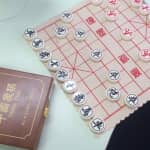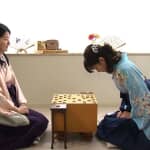Child-raising Shogi 28 March 2017
Ladies Professional Shogi Player’s Five Secrets–In Order for Children Not to be Afraid of Losing a Game–
Many mothers of children who play Shogi claim, “My child is reluctant to play a Shogi game, being afraid of losing a game”.
As a professional player, I can tell how children are disappointed when they lose a game. Also, it’s quite natural for human beings to be afraid of losing a game, but rather good for children. At the same time, as a mother of three children I can understand that mothers want her children to play Shogi with the other child. Experiencing to lose a game is also one of important life experiences, and more importantly playing with different persons will provide deeper and broader interest in I have employed Shogi.
This time, I would like to share my reminders to eliminate children’s fear for losing a game. I do hope this article can help mothers with the same worries.
1. Not to judge only outcome of the game.
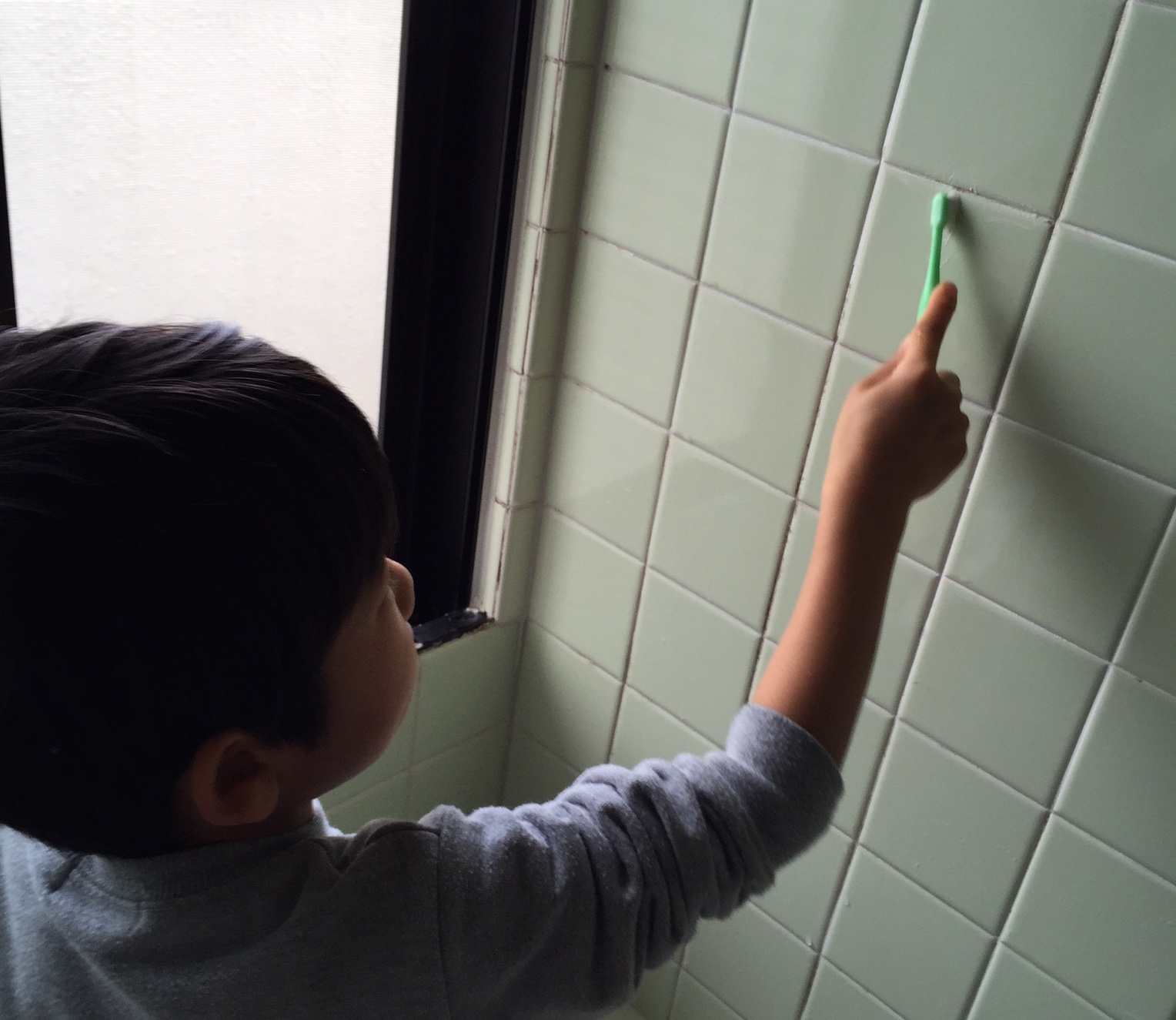
I would like to introduce my approach for children I’ve applied in my Shogi class. I generally avoid using noughts-and-crosses, when we record the outcome of a game. Noughts usually means wining and crosses do losing. Those marks tell too much about the result of a game, I think.
Instead of using them, I give three stamps for winners and one for someone defeated. The more stamps children get, the more delighted they become. Children become to focus on getting stamps and then not to avoid matches with friends.
Also with a little ingenuity, I set an evaluation standard other than a matter of wining and loosing; whether or not children can exchange greetings, for example. My point of giving children stamps is not limited only to the outcome of a game.
Indeed, as customary I use black dots for losing at league matches or tournaments. I know it’s not practical to avoid direct description completely, but regularly I integrate a technique with no-crosses.
These ingenuities would work not only in Shogi classes, but at home.
Ask children if they played games a lot with friends. When the answer is “Yes”, give many stamps on an original grade report, saying “Good job!”
2. Opponent should be someone far older.
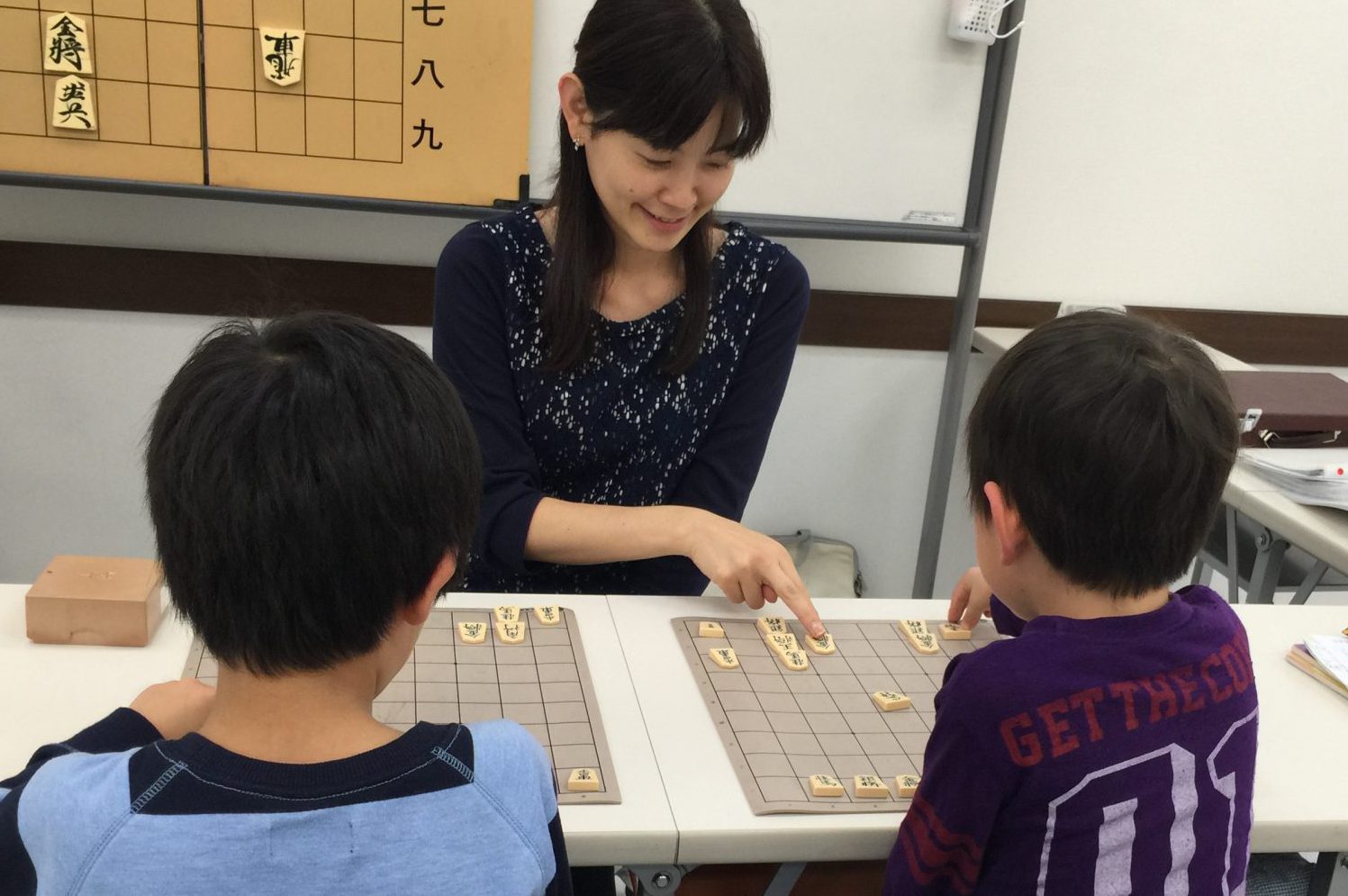
Children who are not good at losing a game should have someone older than them as their opponents. As Shogi is open for all ages to play, it often happens that small children are very strong. Even we know this, it is very frustrating to be beaten by someone of the same age as you, least of all by someone younger than you.
If your children go to a Shogi practice hall or class, you can use the help of someone older than your children. If not, you may ask acquaintances who are older than your children.
It is understandable that children couldn’t accept advice from the same age or the younger one willingly. On the contrary, probably, or hopefully, children could get that of the older one without resistance.
3. Mom, it’s time for you to develop your Shogi skills.
I have noticed that there are not a few children who claim the reason they avoid playing with their friends; they insist that they hardly ever lose a game against their Mothers. It’s frustrating for Mom, isn’t it?
It’s time for Mom to turn over a new leaf! Why don’t you develop your Shogi skills secretly?
The possible ways to do so are the following; attending Shogi lessons (recently there are ones for ladies exclusively), or reading books about Shogi at your own pace, and so on. Mom, you are the one who need to enjoy Shogi. It’s the most important to do things with fun.
An article is posted to tell about “five reasons why it’s good for Mom to play Shogi with children” on our blog. If you would like, visit our site!
“I seldom lose a Shogi game against Mom”, many children say. I think they actually mean, “I feel at ease with Mom, playing Shogi.” Secure feelings make them choose their mother as his/her opponent. Probably, children would get less frustrated with results when they lose against Mom than against their friends.
I would recommend mothers to give their children opportunities to lose a game a lot. For those who are wondering if your “strength” will hurt children, I would say, “Don’t worry, children’s flexibilities will surely make them stronger and they will catch up with you soon.”
When children win a game against you, remember to praise children. This will lead them to notice that it is wonderful to get an upper hand of strong rivals after hard working.
In addition, you may enjoy playing Shogi at any age as your hobby with your children. It sounds good, doesn’t it?
4. Participating in tournaments
It would be good to set situations where your children will have a game with other children, if they are reluctant to play with friends. Participating tournaments could be one of appropriate situations, especially a tournament for children is recommendable.
Indeed, getting advice about taking part in tournaments, someone who is losing his/her drive after losing streak often regain motivation for practicing Shogi.
A Shogi tournament for children has many highlights. These highlights will offset children’s sense of defeat.
A girl of an I-tsu-tsu staff participated in a tournament for children. Even though she lost a game in main match, she was satisfied with such highlights; playing many extra games after losing her game, or accepting prizes for participation.
Making a connection between losing something and having fun, and overwrite losing a game; losing a game is not bad.
5. “Losing, it is the case with most people!”
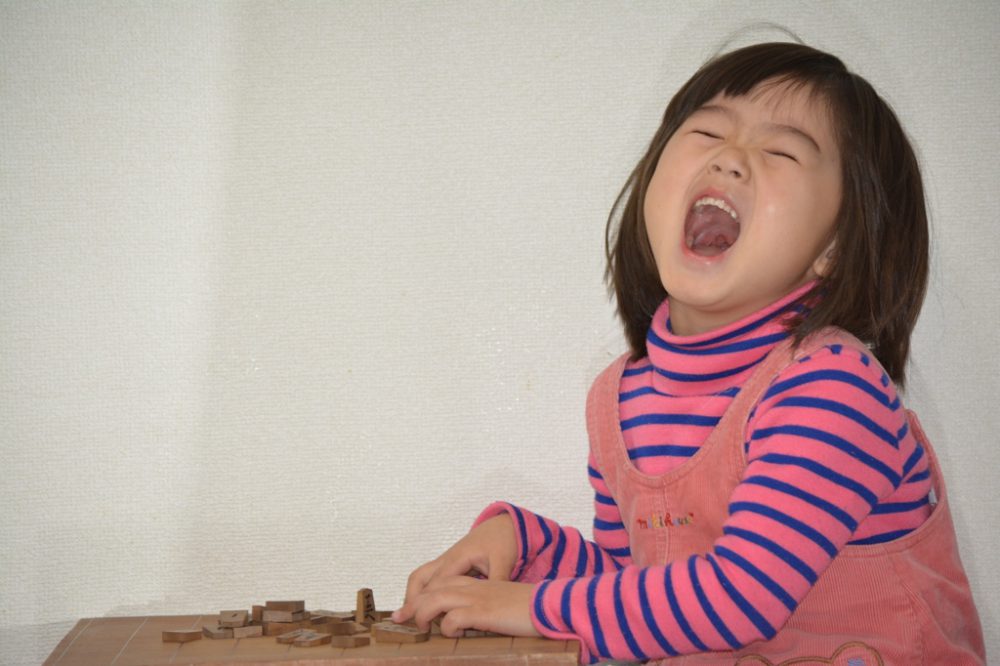
Before you know it, as parents, you become more eager about your children.
For example, when children lose at school events, such as exams, running races at sports meets, or a game of club activities, negative results tend to make parents more frustrated than children. If you take out your frustrations on children, children would regard losing something as bad thing.
As you know, “Failure teaches success.” When children lose game, you may console them, saying “You may find something good behind losing, since it will give you a good chance to become stronger. So, you may lose!” In Shogi class, I try to keep saying to children; “No one shouldn’t lose.”
I introduced the way to guide children not to avoid losing a game. Does it make sense to you?
I do hope you could find something you can do today from this article. If
